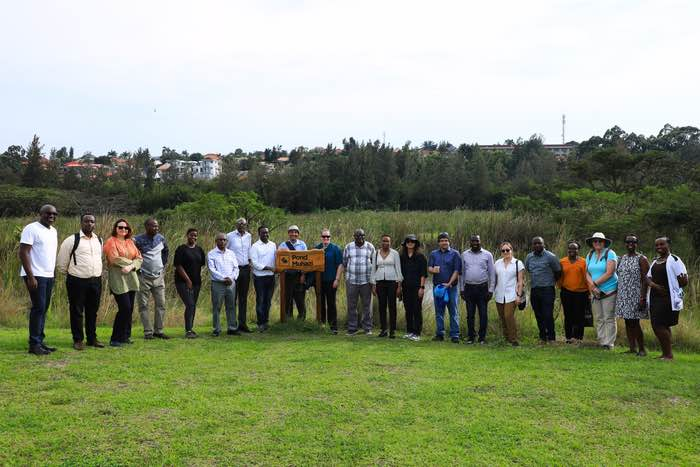
World Bank delegation, led by Valerie Hickey, global Director of Environment, Natural Resources and Blue Economy, visited Nyandungu Eco Park which represents the single largest addition to public green space in Kigali in the city’s history.
The delegation was thoroughly impressed by Rwanda’s remarkable efforts in restoring urban wetlands. Valerie Hickey commended Rwanda’s efforts to restore degraded wetlands and environment in general, saying that these efforts not only benefit the environment and biodiversity, but also communities living around restored environment.
The rapid growth of Kigali and the associated human activities have put significant pressure on the wetlands. Wetlands, including Nyandungu, have been degraded and this led to biodiversity loss. Encroachment has also resulted in downstream flooding as well as increased pollution due sewage outflows.
In 2016, the Government of Rwanda through the Rwanda Environment Management Authority (REMA) developed the Nyandungu restoration project to respond to these challenges and demonstrate the potential of wetlands to abate pollution and reduce the risk of flooding in urban areas.
Since then, the Rwf 4.5 billion project has restored critical habitats, including a native fig forest and the wetland itself, and rehabilitated streams and ponds to alleviate floods and reed-beds to reduce pollution before turning the wetland into an Eco Park. The 122-hectare park represents the value of restoring urban ecosystems, and serves as a blueprint for other wetlands in the City of Kigali and across Rwanda.
The Nyandungu Eco Park provides a space for residents and visitors to the city to explore and learn from nature, and is part of Rwanda’s efforts to harness eco-tourism to restore biodiversity and conserve urban wetland ecosystems.
The restoration of Nyandungu Wetland to an Eco-Tourism Park serves as an example of Rwanda’s efforts and commitment towards environmental protection, particularly for the restoration and conservation of wetland ecosystems at large, as well as eco-tourism.
Nyandungu Eco Park features a medicinal garden, a Pope’s Garden, five catchment ponds, three recreation ponds, an information Centre, a restaurant as well as more than 8km of walkways and bicycle lanes. (End).
